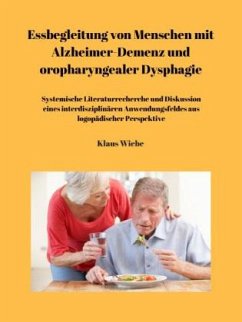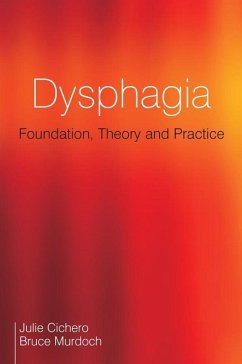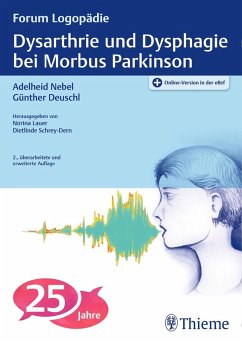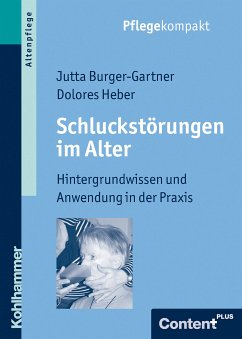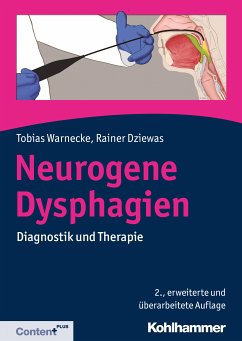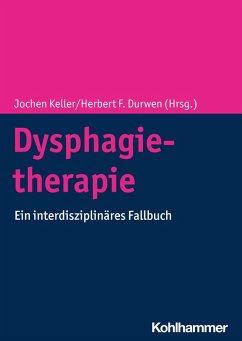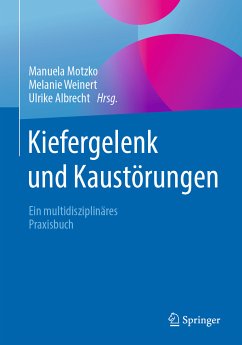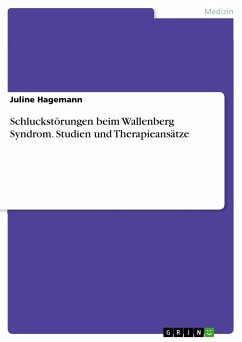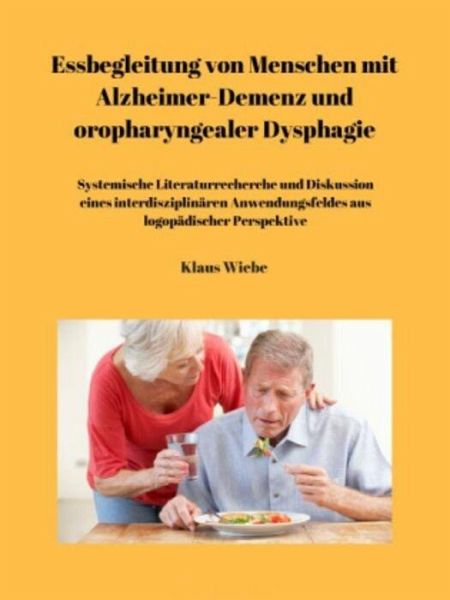
Essbegleitung von Menschen mit Alzheimer-Demenz und oropharyngealer Dysphagie - ein systematisches Review (eBook, PDF)
Versandkostenfrei!
Sofort per Download lieferbar
21,95 €
inkl. MwSt.
Weitere Ausgaben:

PAYBACK Punkte
0 °P sammeln!
Aims:The aim of the systematic review was to examine the current evidence on the ques-tion, whether regular dining accompaniments for people with Alzheimer's dementia (AD) and oropharyneal dysphagia reduce the swallow-related symptoms.Methods:After describing the theoretical background with the institutional and societal condi-tions of dysphagia in Alzheimer's dementia, the author explains the methods for study selection and the classification according to study criteria and evidence level.Results:The six selected studies are characterized by different topics such as physiothera-peutic aids, e...
Aims:The aim of the systematic review was to examine the current evidence on the ques-tion, whether regular dining accompaniments for people with Alzheimer's dementia (AD) and oropharyneal dysphagia reduce the swallow-related symptoms.Methods:After describing the theoretical background with the institutional and societal condi-tions of dysphagia in Alzheimer's dementia, the author explains the methods for study selection and the classification according to study criteria and evidence level.Results:The six selected studies are characterized by different topics such as physiothera-peutic aids, eating intervention in nursing, early detection of dysphagia in AD, typi-cal swallowing patterns in AD, speech therapy in AD and eating intervention even in severe difficulties without percutaneous endoscopic gastrostomy (PEG). For evi-dence assessment, levels two through four are identified. Logopedic, physiothera-peutic and nursing measures for eating interventions including diagnostic and prog-nostic methods are called effective interventions.Conclusions:The multidisciplinary dimension of the geriatric-oriented clinical picture, in view of demographic trends, will present major challenges for the healthcare sector in the future. Further studies on the effectiveness of the therapeutic and nursing care measures are needed to ensure the care and quality of life of people with Alzhei-mer's disease and dysphagia. ABSTRACTING & INDEXING Essbegleitung von Menschen mit Alzheimer-Demenz und oropharyngealer Dysphagie - ein systematisches Review is covered by the following services: Baidu Scholar CNKI Scholar (China National Knowledge Infrastructure) Dimensions ExLibris Google Books Google Scholar Naviga ReadCube Semantic Scholar TDOne (TDNet) WorldCat (OCLC) X-MOL
Dieser Download kann aus rechtlichen Gründen nur mit Rechnungsadresse in A, B, BG, CY, CZ, D, DK, EW, E, FIN, F, GR, HR, H, IRL, I, LT, L, LR, M, NL, PL, P, R, S, SLO, SK ausgeliefert werden.




